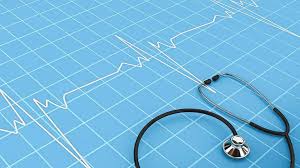Overview of the Report
A recent report released by the American Heart Association (AHA) has sent shockwaves through the medical community. According to the findings published in the journal Circulation, more than 6 in 10 Americans are projected to have cardiovascular disease by the year 2050.
Insights from the Report
Magnitude of the Issue
The report highlights that cardiovascular disease, encompassing conditions like hypertension, is expected to afflict over 184 million adults in the U.S. by 2050. This staggering statistic represents approximately 61 percent of the American population.
Rising Prevalence Rates
The projections indicate a significant uptick in the prevalence of coronary disease and heart failure over the coming decades. Coronary disease is anticipated to increase from 7.8 percent in 2020 to 9.2 percent by 2050, while heart failure rates are projected to rise from 2.7 percent to 3.8 percent during the same period.
Implications and Concerns
Healthcare Burden
The exponential rise in cardiovascular disease poses significant challenges for healthcare systems across the nation. Managing and treating such a large proportion of the population affected by these conditions will undoubtedly strain resources and infrastructure.
Impact on Individuals
Beyond the healthcare sector, the implications of these projections extend to individuals and families. Cardiovascular diseases can have profound impacts on quality of life, leading to disabilities, financial burdens, and emotional distress.
Addressing the Crisis
Preventive Measures
To mitigate the looming crisis, proactive measures aimed at preventing cardiovascular disease are imperative. This includes promoting healthy lifestyle habits, such as regular exercise, balanced diet, smoking cessation, and stress management.
Early Intervention
Early detection and intervention are also crucial in curbing the progression of cardiovascular diseases. Regular screenings, monitoring of risk factors, and timely medical interventions can significantly reduce the burden of these conditions.
The findings of the AHA report serve as a wake-up call, highlighting the urgent need for concerted efforts to address the rising tide of cardiovascular disease in America. By prioritizing preventive measures and early intervention, we can strive towards a healthier future for generations to come.








